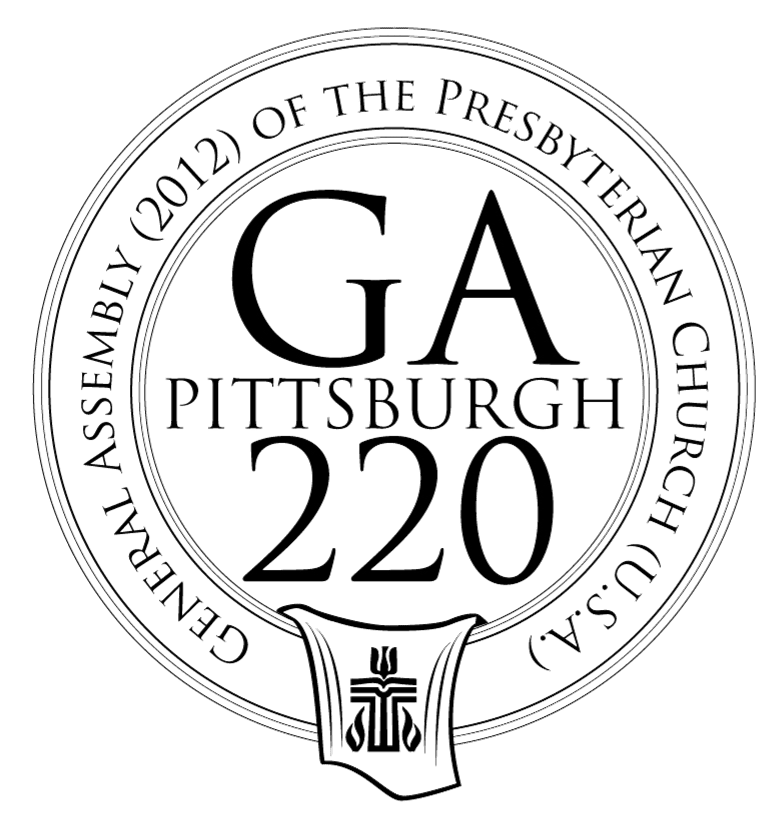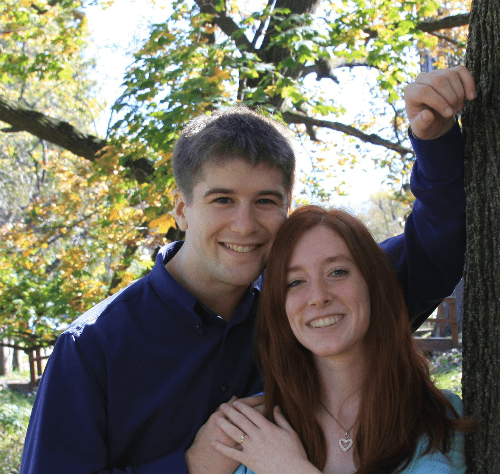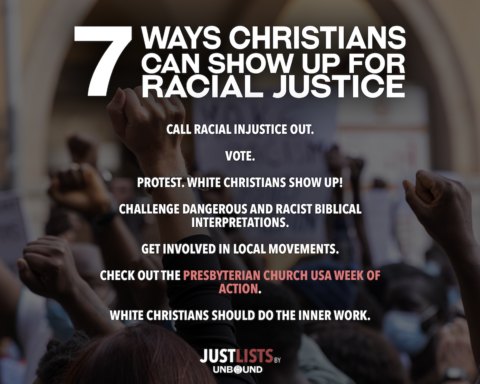The Justice Implications of the Presbyterian Mid-Council Report
By Alex Becker, reporting on structural changes being considered by the Presbyterian Church (U.S.A.) 220th General Assembly Walking down the hall on the third floor of the David Lawrence Convention Center in Pittsburgh, you’d think the Mid-Council committee was one of the least important things going on at General Assembly. First of all, it’s on the top floor of the convention center. Once you’ve gone up the escalator twice, you take a right and walk past all the other rooms, including overflow seating for other committees, to get to committee number five and their discussion about presbyteries and synods (the regional representative bodies of the church). This committee might seem obscure and unimportant, bogged down in the nitty-gritty of PC(USA) polity. But when the issues discussed will determine how Presbyterians relate (or don’t relate) to one another, it becomes more than an issue of words on a page; it becomes an issue of justice.
Walking down the hall on the third floor of the David Lawrence Convention Center in Pittsburgh, you’d think the Mid-Council committee was one of the least important things going on at General Assembly. First of all, it’s on the top floor of the convention center. Once you’ve gone up the escalator twice, you take a right and walk past all the other rooms, including overflow seating for other committees, to get to committee number five and their discussion about presbyteries and synods (the regional representative bodies of the church). This committee might seem obscure and unimportant, bogged down in the nitty-gritty of PC(USA) polity. But when the issues discussed will determine how Presbyterians relate (or don’t relate) to one another, it becomes more than an issue of words on a page; it becomes an issue of justice.
The Mid-Council Commission
When I visited the committee, the commissioners and advisory delegates had already received the 111 page basic report and had raised questions by talking in small groups and as a committee. The next day, they listened to the Mid-Council Commission members present their work. The tagline was this: “Flat. Flexible. Faithful.” They presented eight recommendations, but two caught my attention: proposals 1-5, which remove synod structures and replace them with alternatives, and proposal 6, which allows for the creation of non-geographic presbyteries until 2021.
The room was quiet as the committee presented their idea to eliminate synods. Dr. Tod Bolsinger, moderator of the committee, argued for the prioritization of healthy, missional congregations. Congregations, he said, were the locus of God’s mission in the world, not mid-councils or denominational structures. He outlined the committee’s recommendations as follows: repurpose the synods, allow presbyteries freedom to experiment for a definitive time, raise up the best practices, study other GA structures, and in all things, serve congregational mission.
___________________________________________
But when the issues discussed will determine how Presbyterians relate (or don’t relate) to one another, it becomes more than an issue of words on a page; it becomes an issue of justice.
___________________________________________
It’s easy to get lost in the words. But the reality is stark and clear: the PC(USA) is hemorrhaging members, and the Mid-Council Commission thinks that it has something worth trying – not a magic bullet, but a way forward. And we need a way forward, according to commission member Rev. John Vest, because Christendom is gone and the United States has become a mission field again. The commission believes that structural changes can make a big difference in how that mission field is engaged.
Their opinion is not shared by everyone.
Synods
Opponents to the recommendation emphasize the important functions that synods still serve even as they have reduced their roles. Many, in particular, have raised the importance of synod schools and the necessity of the synod’s role as an arbiter of racial issues. The commission believed that it had accounted for those issues. As of July 3rd, however, it appears that they were wrong.
On the morning of July 3rd, the General Assembly Mid-Council committee voted against recommendations 1-4. According to John Vest on Twitter, one of the main arguments was that the recommendations were “too much change too soon.”[1] Instead, the committee appears to have recommended that more study be done on synods, asking for an answer to the question of how many synods are ideally needed for the church. John Vest has an answer for them already: zero.[2]
Presbyteries
The issues at stake in the debate over non-geographic presbyteries may be even greater than those surrounding synods. The creation of the Evangelical Covenant Order of Presbyterians has many wondering if non-geographic presbyteries will allow for the creation of a New Wineskin-like presbytery of the theologically conservative (or the theologically liberal) in the PC(USA) (despite the fact that the discussion began long before the ECO was formed). The argument comes down to this: do we allow for like-minded presbyteries to form non-geographically in our electronically connected world and, as a result, have better functioning presbyteries? Or do we maintain our current structure, encouraging presbyteries to foster diversity, stay in conversation with one another, and avoid potentially life-threatening divisions within the PC(USA)?
___________________________________________
The fundamental question asked by the Mid-Council Commission, in my opinion, is this:
How can we learn to trust one another again?
___________________________________________
In the opinion of Theresa Cho, forming non-geographic Korean presbyteries didn’t solve the fundamental problems faced by Korean churches, and the only benefit was that the denomination no longer needed to “look at some of the systemic racist ways we are in relationship with each other.”[3] On her blog, she lifts up the success of the Presbytery of San Francisco in overcoming differences without splitting into different presbyteries. On the other hand, John Vest argues that presbyteries are not responsible for diversity: they are responsible for supporting the mission of local congregations. For him and for the mid-council commission, non-geographic presbyteries are a way of forming new connections and experimenting with new ideas in the church. It seems that the committee, however, sides with Theresa Cho rather than John Vest, having voted against this recommendation.
An Issue of Trust
In the end, the division in our church is echoed in division over how to move the church forward. Both parties on these issues want to enrich the church and foster growth in congregations. Some are worried that too much risk is involved or that the experiment isn’t worthwhile; others think the church needs a little risk taking in order to move forward. Whether justice is done in the repurposing of synods or the formation of non-geographic presbyteries doesn’t depend on what the General Assembly approves; it depends on what actions presbyteries take afterwards. The fundamental question asked by the Mid-Council Commission, in my opinion, is this: How can we learn to trust one another again? Perhaps only the Holy Spirit can soften our hearts enough to reach across the aisle and choose to work with one another, no matter whether we’re forced to do so or not.
My prayer is that, whatever happens at plenary, the Holy Spirit moves through the work of the Assembly to provide a way forward for the church. That way we can avoid the pessimism expressed by one commentator: “Given that the denomination is dying anyway, who really cares?”[4] My answer: if the denomination is dying, remember that we believe in a Christ who also died but was resurrected and lives still today.
Notes
[1] https://twitter.com/johnvest/status/220170591884427265
[2] https://twitter.com/johnvest/status/220163973616648192
[3] http://theresaecho.com/2012/06/22/non-geographic-presbyteries-the-issue-of-diversity/
[4] http://theresaecho.com/2012/06/22/non-geographic-presbyteries-the-issue-of-diversity/
 Rev. Alex Becker is the pastor of Henryville Community Presbyterian Church and Mount Lebanon Presbyterian Church in Henryville, Indiana, and he also serves as a leader for Team Sweaty Sheep in Mid-Kentucky Presbytery, one of the 1,001 New Worshiping Communities of the PC(USA).
Rev. Alex Becker is the pastor of Henryville Community Presbyterian Church and Mount Lebanon Presbyterian Church in Henryville, Indiana, and he also serves as a leader for Team Sweaty Sheep in Mid-Kentucky Presbytery, one of the 1,001 New Worshiping Communities of the PC(USA).






Unbound Social